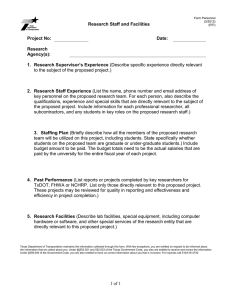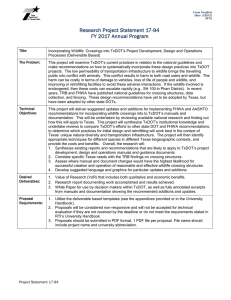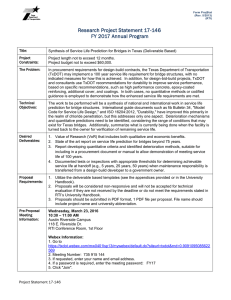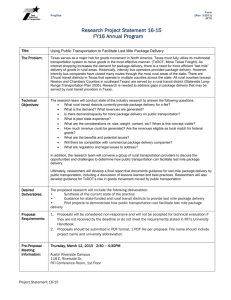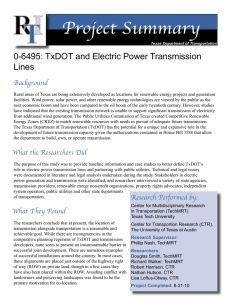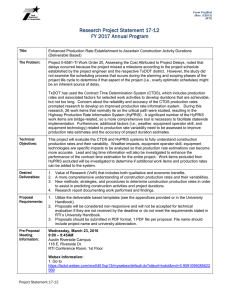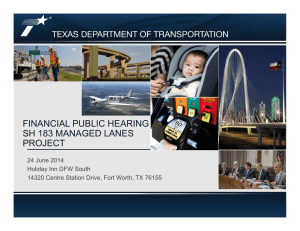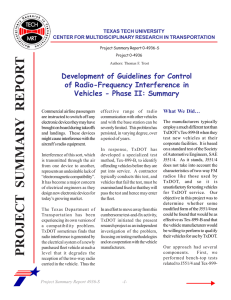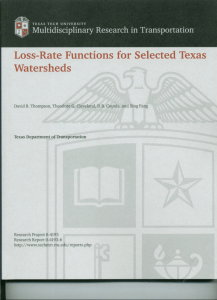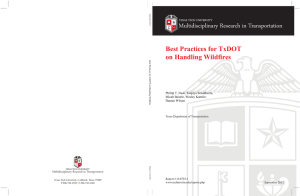Project Summary 0-4193: Regional Characteristics of Unit Hydrographs Background
advertisement
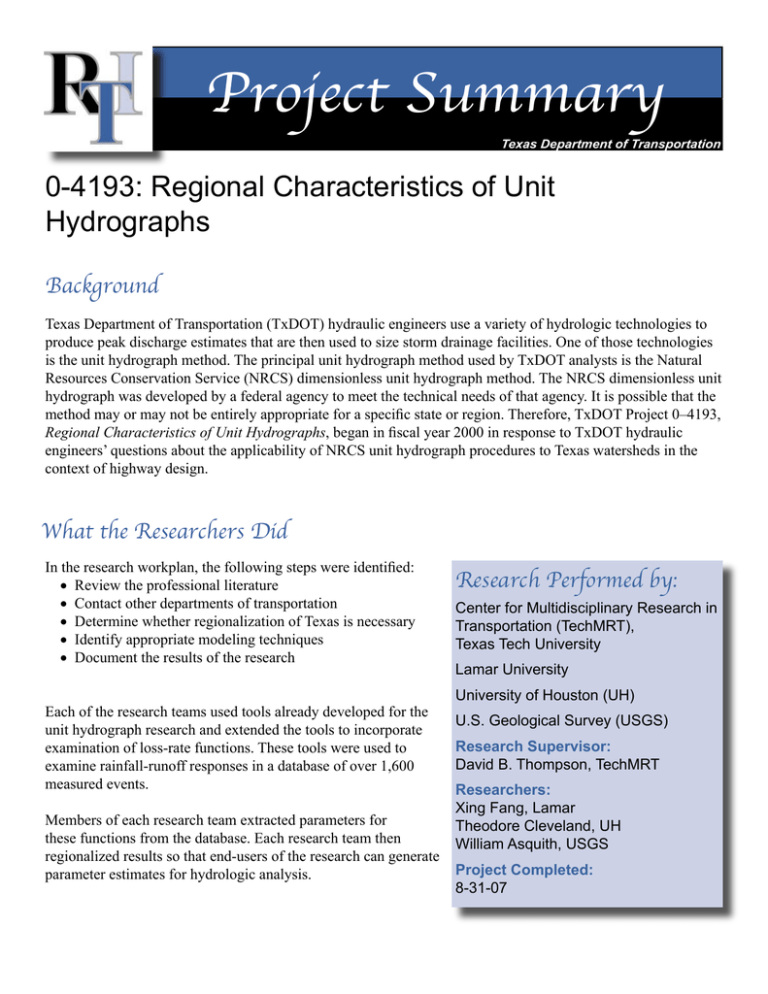
Project Summary Texas Department of Transportation 0-4193: Regional Characteristics of Unit Hydrographs Background Texas Department of Transportation (TxDOT) hydraulic engineers use a variety of hydrologic technologies to produce peak discharge estimates that are then used to size storm drainage facilities. One of those technologies is the unit hydrograph method. The principal unit hydrograph method used by TxDOT analysts is the Natural Resources Conservation Service (NRCS) dimensionless unit hydrograph method. The NRCS dimensionless unit hydrograph was developed by a federal agency to meet the technical needs of that agency. It is possible that the method may or may not be entirely appropriate for a specific state or region. Therefore, TxDOT Project 0–4193, Regional Characteristics of Unit Hydrographs, began in fiscal year 2000 in response to TxDOT hydraulic engineers’ questions about the applicability of NRCS unit hydrograph procedures to Texas watersheds in the context of highway design. What the Researchers Did In the research workplan, the following steps were identified: • Review the professional literature • Contact other departments of transportation • Determine whether regionalization of Texas is necessary • Identify appropriate modeling techniques • Document the results of the research Research Performed by: Center for Multidisciplinary Research in Transportation (TechMRT), Texas Tech University Lamar University University of Houston (UH) Each of the research teams used tools already developed for the unit hydrograph research and extended the tools to incorporate examination of loss-rate functions. These tools were used to examine rainfall-runoff responses in a database of over 1,600 measured events. Members of each research team extracted parameters for these functions from the database. Each research team then regionalized results so that end-users of the research can generate parameter estimates for hydrologic analysis. U.S. Geological Survey (USGS) Research Supervisor: David B. Thompson, TechMRT Researchers: Xing Fang, Lamar Theodore Cleveland, UH William Asquith, USGS Project Completed: 8-31-07 What They Found Watershed development condition is a critical component in analysis of the watersheds represented in the database. The analysts who generated the original data used in this research project did not quantify the degree of watershed development; a watershed was treated as either developed or undeveloped. Therefore, it was not possible to refine the research analysis based on degree of watershed development. However, even with that limitation, three of the four research teams were able to identify a difference in loss-rate parameters based on this simple watershed characteristic. The difference between initial abstraction for undeveloped watersheds versus initial abstraction for developed watersheds is striking. Furthermore, the lack of substantial differences between loss-rates is also important. Each research team developed an algorithm for application of its results. The methods are defined in the final project report as well as appropriate parameter values. What This Means TxDOT research is resulting in techniques that will allow highway engineers to make better estimates of discharge under a wider set of conditions than ever before. A significant task that remains to be accomplished is the integration of ten years of hydraulic and hydrologic research. Results from several projects represent closure of research on: unit hydrographs and loss rate functions, project 0-4193; design rainfall distributions (hyetographs), project 0-4194; NRCS curve numbers, project 0-2104; watershed timing parameters, project 0-4696; and scale issues, project 0-4405. These were important research projects that potentially can affect drainage design throughout Texas. Integration of these research findings should be accomplished through future updates to the TxDOT Hydraulic Design Manual. For More Information: Research Engineer - Tom Yarbrough, TxDOT, 512-465-7403 Project Director - George R. Herrmann, TxDOT, 325-947-9321 Research Supervisor - David B. Thompson, TechMRT, 775-782-2322 Technical reports when published are available at: http://library.ctr.utexas.edu/index.html www.txdot.gov keyword: research Research and Technology Implementation Office P.O. Box 5080 Austin, Texas 78763-5080 512-465-7403 This research was performed in cooperation with the Texas Department of Transportation and the Federal Highway Administration. The contents of this report reflect the views of the authors, who are responsible for the facts and accuracy of the data presented herein. The contents do not necessarily reflect the official view or policies of the FHWA or TxDOT. This report does not constitute a standard, specification, or regulation, nor is it intended for construction, bidding, or permit purposes. Trade names were used solely for information and not for product endorsement.
